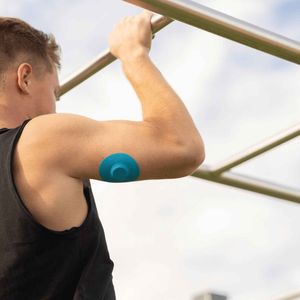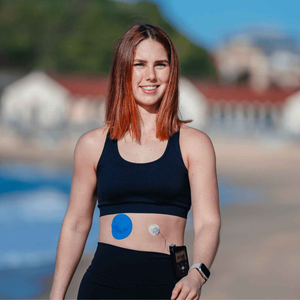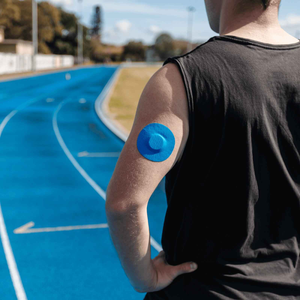At just 12 years old, Sarah Marriott was at a cross-country ski camp when she first sensed something wasn’t right.
“I was ravenous, constantly thirsty, rapidly losing weight, and struggling to keep up with my teammates in training – I knew something was wrong,” she recalls.
A blood test and less than 24 hours in hospital changed her life forever. She was suddenly thrown into the world of Type 1 Diabetes (T1D). Looking back, Sarah describes it as a traumatic time – not just for her, but also for her parents, who had no medical background. At that age, the weight of a lifelong condition hadn’t yet sunk in.

“I remember being more concerned with the IV drip needle than the fact I’d need multiple insulin injections a day for the rest of my life.”
But she wasn’t alone. At her school, other students living with T1D and their families offered guidance, recommending an incredible diabetes educator, a supportive endocrinologist, and introducing her to helpful technology. In the early days, her mum would visit school twice daily to inject insulin. With encouragement from school nurses, Sarah soon learned to do it herself. Within a year, she transitioned to an insulin pump and CGM, gaining greater control over her health.
However, being told to stop sport while she learned to manage diabetes felt even harder than the diagnosis itself.
“Sport was such a huge part of my identity – athletics, cross-country, swimming, netball, basketball, skiing – I represented my school in almost everything. There was no way I was giving that up.”

Through trial and error, she realised preparation was everything – balancing food, insulin, exercise, sleep, stress, and emotions. Hypoglycaemia occasionally meant sitting on the sidelines, but most of the time, her determination won out. Managing diabetes built her resilience and discipline, shaping how she approaches challenges in all areas of life.
“I even started working harder at school. I knew I might not always have time or energy for multiple drafts, so I learned to make my first effort count.”
Today, Sarah is a student-athlete at Stanford University in the US, living a life that many only dream of. Her day begins at 5 am with rowing training in the south end of the San Francisco Bay – often under breathtaking sunrises – followed by classes, land training in the afternoons, and evenings filled with team dinners, study, and preparation for the next day.
“Through it all, diabetes management is constant – checking my levels, adjusting insulin, eating the right things at the right times. Organisation, eating well, and proper rest make all the difference.”
When asked what she wishes someone had told her at diagnosis, her answer is powerful:
“I wish someone had said that nothing is off-limits, especially sport. Instead of hearing, ‘you need consistency, you might have to stop,’ I wish I’d heard, ‘you can still chase your dreams, you just need to prepare.’”

She also reflects on how technology has evolved since her diagnosis. No more finger-prick tests – her pump and CGM now operate in a closed loop, automatically adjusting insulin to prevent hypos and hypers. It feels like having an extra set of eyes, reducing the mental load and giving her confidence to push forward.
And push forward she does.
“Since I was a kid, I’ve always wanted to represent Australia at the Olympics. Initially, I thought it would be in cross-country skiing, but during Melbourne’s lockdowns, I shifted my focus to rowing.”
Lockdowns became an opportunity to learn how to manage her diabetes during different types of training, building a foundation that has since taken her to incredible heights. Sarah has represented Australia on multiple underage teams, trained at the National Training Centre, made the final of the 2024 Olympic Trials, and earned a scholarship to Stanford University. Missing out on Paris 2024 only fuelled her determination to set her sights on LA 2028.
“Diabetes might be part of my story, but it’s never been the reason I stopped. In fact, it’s made me a better athlete and person – it has taught me to plan better, work harder, and never take a moment for granted.”





